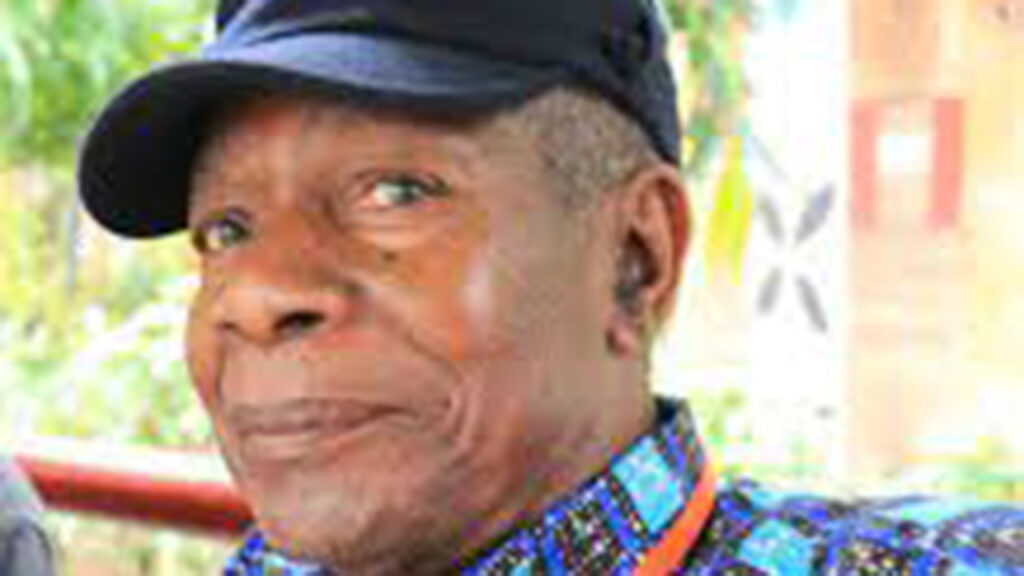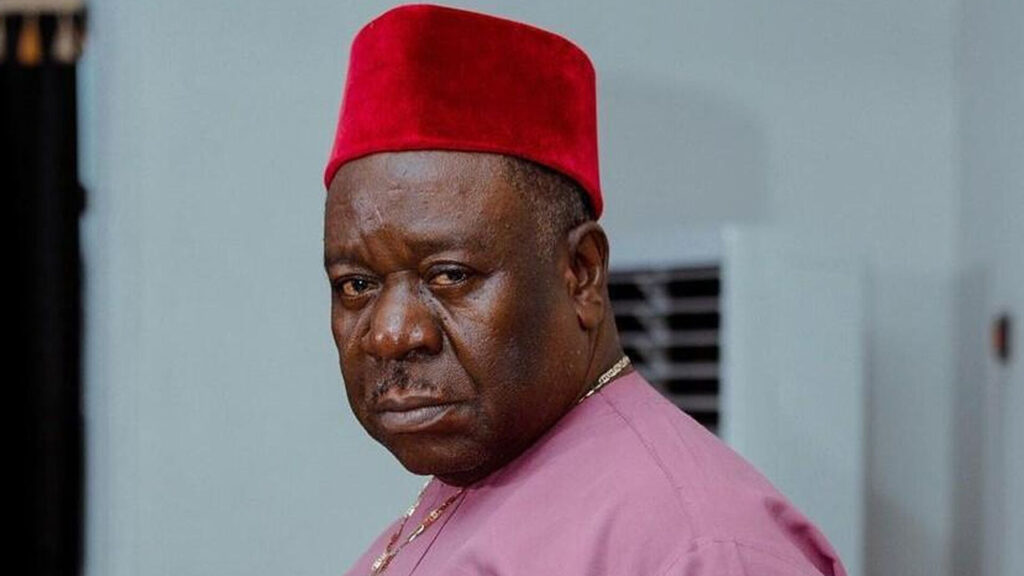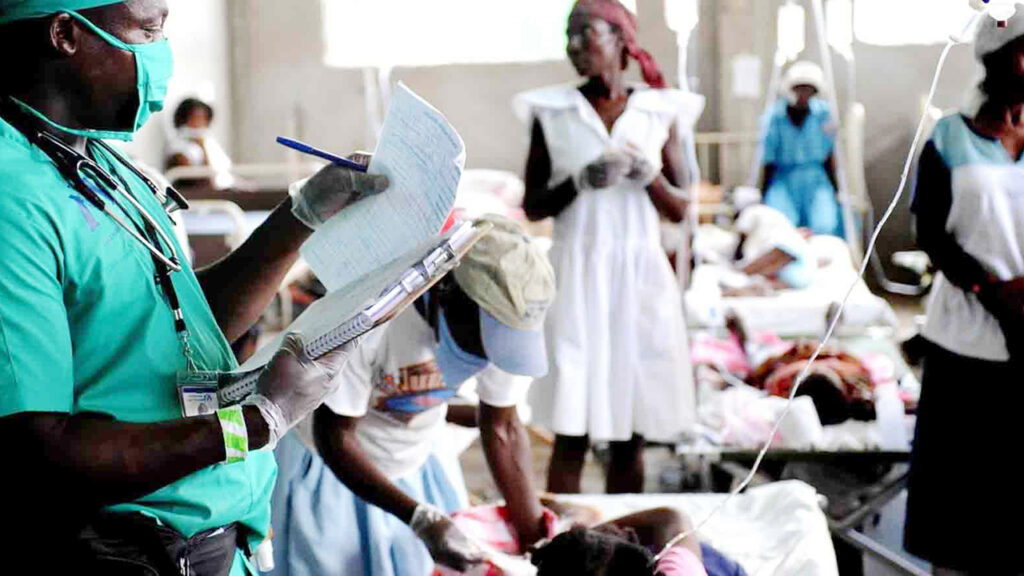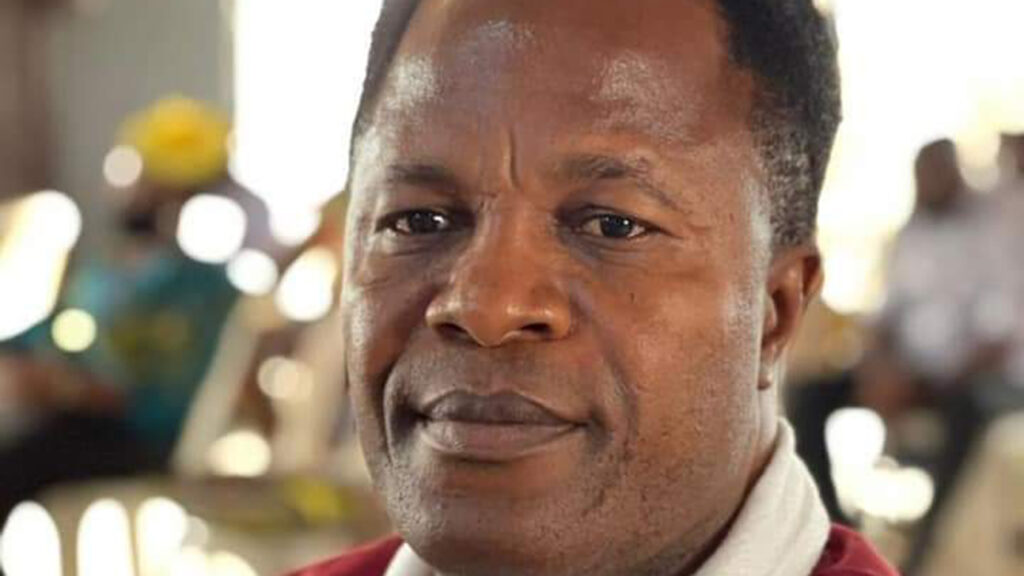
As the country struggles to curb drug abuse through the National Drug Law Enforcement Agency (NDLEA), and other stakeholders, the need to see the menace as a public health problem that must be approached with a measure of humanity, rather than treating it purely as a criminal matter dominated discourse recently when the world marked the International Day Against Drug Abuse and Illicit Trafficking. PAUL ADUNWOKE writes.
Drug addict turned advocate, David Folaranmi, a 2007 graduate of economics is one of Nigeria’s lucky drug survivors.
With his first contact with hard drugs being in his alma mater – Covenant University, Ota, Ogun State, he recalled that a few students of his ilk used the then uncompleted library complex as a binging ground where they experimented with psychotropic substances.
Folaranmi, however, managed to navigate his way through the university without getting addicted and thereafter headed to the United Kingdom for a master’s degree in 2010.
“I shared a flat with two Europeans and I experienced debauchery on another level,” the drug advocate went down memory lane, adding, “Sometimes they will do drugs for weeks without stepping out of the house. So I began experimenting with mushrooms, MDMA, ketamine, and marijuana. I did the occasional lines of coke too. I came to Nigeria in August 2011 for a wedding and that was when the real issue started. A friend of mine (another CU graduate) introduced me to crack cocaine and that was the beginning of seven years of chronic addiction. …
I spent up all of my savings in millions, and sold my car, at a time I was instrumental in the sale of my mum’s house in an estate in Abuja to help pay my drug use debts, I was in an out of rehab but I didn’t get better at some point I was living in the bunk (drug houses). I lost three friends to drug overdoses (including a CU graduate). This was unfathomable by many who knew me from childhood because I was born to fervent Christian parents in the winners family, dedicated at a young age by Bishop Oyedepo, I started preaching at age 6 and was leading the home cell at age 8.”
He narrated further: “In August of 2017, l attempted suicide by drinking poison and bleach. It was a lethal dose, I had written my suicide note and said my goodbyes in it, but then very unexpectedly my younger brother came home and saw me foaming from my mouth, clutching my stomach, then he saw the note, he and my mum immediately rushed me to the hospital.”
Unlike the stigmatisation that most in his shoes face in society, Folaranmi was not only spared such treatment, but he was also saved from the jaws of avoidable death, embraced, nursed to good health, and steered back to normal life by his very caring, loving and supportive family.
What Folaranmi enjoyed en route to shaking off the unhealthy choice that he made as a young person, is the theme of this year’s International Day Against Drug Abuse and Illicit Trafficking World, which goes thus: “People First: Stop Stigma and Discrimination, Strengthen Prevention.”
As Nigeria joined the rest of the world to mark the celebration last Monday, the need to show understanding with drug users rather than stigmatise them was the central message that experts within and without the country preached.
The theme was also used to raise awareness about the negative impact of stigmatisation and discrimination against those who abuse drugs and their families; raise awareness about the AIDS and hepatitis epidemics among drug addicts; expand and strengthen HIV and hepatitis prevention programmes; promote evidence-based, voluntary services for all people who use drugs; educate about drug use disorders, available treatments and the importance of early intervention and support; advocate for alternatives to imprisonment for drug-related crimes, such as community-based treatment and services, as well as, combat stigma and discrimination by promoting language and attitudes that are respectful and non-judgmental and empower young people and communities to prevent drug use and addiction.
Experts, who dwelt on the theme, explained that to rid the country of drug abuse, the government and other stakeholders must find a way of treating those who have become dependent on drugs. They also harped on the need to show empathy to those undergoing treatment and rehabilitation, noting that in understanding with them their situation, society should purge itself of discrimination against them and help them in their journey of rehabilitation and reintegration.
The Executive Director of the United Nations Office on Drugs and Crime (UNODC), Ghada Waly, in her message, noted that drugs could cause illness and death, waste years of healthy lives, and propagate violence, harm, and exploitation.
She added: “Those who are affected by drug use disorders are not the perpetrators of these problems. They are the victims.
According to UNODC’s World Drug Report 2023, the latest data indicate that globally, 296 million people use drugs in a single year, while more than 39 million of them suffer from drug use disorders.
“On this International Day Against Drug Abuse and Illicit Trafficking, we are calling for drug responses that are rooted in empathy, built on science, and focused on people.
“People who suffer from drug use disorders, but are blamed and stigmatised instead of receiving treatment and care. People who inject drugs are far more likely to be living with HIV, but face stigma, discrimination, and barriers to treatment. People are imprisoned for minor drug offences, rather than being given a pathway to recovery and rehabilitation. People are punished for resorting to illicit cultivation of drugs out of desperation, instead of being offered alternatives for a sustainable livelihood. People who continue to suffer pain because of the unequal availability of important medicines containing controlled substances. And people who are denied their rights, dignity, and opportunities in life because they use or have used drugs.”
Waly stressed: “It is time to stigmatise the illicit drug market and not the people who are harmed by it.”
“We need humane responses that discard outdated attitudes and focus on the health and well-being of people and communities affected by drugs. We need focused law enforcement interventions to stop drug traffickers from feeding on misery, as several drug types hit new production records, and the threat of synthetic drugs expands rapidly.
And we need to invest heavily in prevention, awareness-raising, early interventions, and services to build the resilience of our communities. Today, let us stand together against the world drug problem and put people first.”
The Director, of Media and Advocacy, National Drug Law Enforcement Agency (NDLEA), Mr. Femi Babafemi, in a statement to mark the day, noted that poverty, peer influence, poor parenting, social media, wrong role models, ailments, and the availability of illicit substances are prominent contributing factors to drug abuse in Nigeria.
He explained that the government, through the NDLEA, has been exploring all available options for curbing drug abuse in the country.
“The transformation of NDLEA in the past two years is a testament to the commitment of our government to address the menace of drug abuse. NDLEA, in turn, introduced several measures to reverse the trend. We have worked on the prevention and treatment aspects, just as we have worked on the drug supply reduction aspect,” he said.

He added that the NDLEA has launched an offensive action to take care of drug supply reduction, disclosing that the measure has led to 30, 129 arrests; 6, 252,924KG (6,252 tons) of illicit drugs being seized; cash and drugs worth over N525 billion being seized; 4,816 offenders successfully prosecuted, and convicted as well as 22,513 drug users counselled and rehabilitated in the past 28 months.
Babafemi also noted that the NDLEA has set up a 24/7 drug abuse call centre with a toll-free helpline, 080010203040, that people who need help and treatment could call, just as the agency has launched a War Against Drug Abuse (WADA) campaign to drive Nigeria’s drug use prevention advocacy. He added that the campaign was being taken to schools, places of worship, among others.
“These measures and others have been hugely successful. We have pushed for key legislation and signed Memorandum of Understanding (MoU) with source countries to make easily abused pharmaceutical opioids unavailable except by licit prescription,” he said.
Babafemi, however, said that curbing drug abuse was not the duty of the government or NDLEA alone.
“We have continued to advocate a whole-of-society approach, which involves every element of society, including the family, education, and religious institutions, as well as traditional institutions. They must play complementary roles in the effort by NDLEA and the government to keep the country safe against illicit drugs,” he stressed.
Babafemi stated that if Nigeria wants to prevent the young ones from experimenting with drugs, it should encourage the establishment of anti-drug use clubs, just like the press clubs, dramatic societies, and JETS Club in primary and secondary schools to drive the message.
“These clubs will provide information and counter-narratives that will neutralise peer influence, which is the usual catalyst for the abuse of illicit substances among young people,” he added.
He disclosed that the agency already has the Drug-Free Club in tertiary institutions, which has been rebranded the WADA Club.
“Usually, when we talk about drug abuse, we focus more on statistics such as the number of offenders arrested, and the volume of substances seized. The real issue, however, if we are going to stamp out this menace, is that we need to start an honest conversation about it. We need to see it as a public health problem that we must approach with a measure of humanity rather than treating it purely as a criminal matter.”
Babafemi said the message that this year’s theme of the celebration is passing across focuses on the fact that many of those addicted to drugs find it difficult to go for treatment because the moment they are known in society as drug abusers, they become stigmatised and nobody would want to have anything to do with them.
“Even after they are totally rehabilitated, this mindset makes it difficult for drug users to seek treatment. And when they seek treatment, they easily relapse once society starts treating them with prejudice. And unless we come to terms with this reality and adjust our mindset on how we relate to and help those with drug abuse problems get over their dependence, we will simply be running around in circles in our effort to have a drug-free society,” he surmised.
The Director General of the National Agency for Food and Drug Administration and Control (NAFDAC), Prof. Christianah Mojisola Adeyeye, in her message, noted that the agency has never relented on its mandate of ensuring that the health of the nation is safeguarded.
Adeyeye stated that drug abuse has been a concern to her since she assumed office, recalling that during her first two quarters in 2018, she was virtually running after tramadol.
“I remember the BBC documentary where our young children were going mad. How women were trading with codeine was a shock for me. Because of the development, the agency swung into action, made many arrests, and prosecuted the offenders to stop further occurrences of the abuse,” she recalled.
Adeyeye explained that excessive and unlawful intake of alcohol is also part of drug abuse, warning that it was out of order for someone less than 18 years to take alcohol.
She said NAFDAC has been working with other regulatory agencies and stakeholders to ensure zero drug abuse in the country, noting that the agency has embarked on campaigns to educate the people about the dangers of drug abuse, excessive alcohol consumption, and underage drinking.
“Recently we rebranded BRT buses in Lagos to discourage underage drinking. We want people to know the dangers and effects inherent in alcohol when you are not of age. The BRT buses ply around the city and as they carry the message we believe the message will get to people,” she said.
Adeyeye stated that the agency has also taken a similar step in the Federal Capital Territory (FCT), Abuja, where it rebranded six BRT buses to educate people about the consequences of drug abuse, adding that it also takes the campaign to schools and National Youth Service Corps (NYSC) orientation camps.
According to the NAFDAC DG, excessive alcohol intake could lead to heart attack, kidney failure and other related health challenges that may lead to untimely death if not treated properly.
“Members of the society should be health-conscious and comply with rules and regulations provided by NAFDAC,” she advised.
On his part, the Executive Director of Stamp Out Drug Abuse Initiative, a non-governmental organisation, Mr. Oluwafemi Silas, said the organisation was founded on April 25, 2018, with the vision of educating, informing, and enlightening youths and the general public on infallible truths about drug abuse.
Silas, who is a member of the International Society of Substance Use Professionals, said the organisation also assists drug addicts to secure rehabilitation centres where they could be treated and rehabilitated.
“In the last four and a half years, we have succeeded in achieving some of our visions by organising seminars, campaigns, workshops and training in schools, communities, youth organisations, churches, mosques, private and public organisations, amongst others,” Silas said.
He said the organisisation has been drawing the attention of the government, families, school authorities, communities, religious bodies, and other stakeholders to the increasing number of young people that are indulging in the abuse and misuse of drugs.
According to him, a survey on drug use in Nigeria conducted in 2018 by the National Bureau of Statistics (NBS) and the Centre for Research and Information on Substance Abuse (CRISA) revealed that about 14.3 million Nigerians between the ages of 15 and 64 used psychoactive substance for non-medical purposes.
He further stated that it was discovered that one in every four drug users in Nigeria was a woman, while one in five persons who use hard substances faced certain drug use disorders.
“Drug abuse or substance abuse refers to the use of certain chemicals to create pleasurable effects on the brain. Drug abuse also means a pattern of repeated drug or alcohol use that often interferes with health, work, and social relationships. The brain is wired to make you want to repeat experiences that make you feel good, so you are motivated to do them again and again,” he explained.
He further explained that drugs that may be addictive target the brain’s reward system, saying they flood one’s brain with a chemical called dopamine.
“This triggers a feeling of intense pleasure so you keep taking the drug to chase the high. We strongly believe that all stakeholders involved in the fight against drug abuse and misuse must come together to tackle this monster by taking pragmatic steps to prevent it. In view of the above, we believe the following practical steps will go a long way in addressing drug abuse in Nigeria,” he said.
Silas urged the government to sanitise the drug distribution system in the country and restrict access to dangerous drugs and over-the-counter drugs that may lead to abuse. He also said the government should continue to make public awareness campaigns via print, social, and electronic media through relevant government agencies both at the federal, state, and local council levels.
He also called for a review of the drug laws, saying the government must ensure that specialists, individuals, cultivators, and carriers involved in drug-related offences are served with stiff penalties.
“The government should establish more rehabilitation centres and employ capable staff to assist people with addiction in rehabilitation centres, stimulate the economy to create employment opportunities, especially for teenagers and youths in the country who are more vulnerable. It should provide educational opportunities to the youth to make them productive rather than idle. It should empower the relevant agencies such as NDLEA, NAFDAC, and the like by funding them adequately and allowing them to discharge their duties professionally. The government should also expand, equip and upgrade the facilities and institutions in charge of treating people with a drug use disorder,” Silas further said.
On the role of the family in curbing the menace, he said parents must educate their children about drug abuse because charity begins at home.
His words: “Parents should give zero tolerance for drug and alcohol use in and outside the house. They should lead by example and expose their children to programmes, videos, and publications that preach against drug abuse. They should avoid exposing their kids to programmes, videos, and publications that promote drug abuse, misuse, and addiction. Parents should know the friends of their children and their family background, as this will help to prevent them from keeping bad company. Do not abdicate your responsibilities in the home for the school, church, or mosque. They are only there to play complementary roles.”
He also urged parents to encourage their children to participate in activities within the scope of their interest, talent, and knowledge. “This will keep them busy and reduce idleness and associated consequences,” he added.
He also noted that community and religious groups also have a major role to play in preventing drug abuse because they are closer to the populace and have a direct influence on the people under them.
“They should educate and enlighten their members and followers about the dangers of drug abuse, misuse, and addiction on both the society and individuals. They can as well set up a team of professionals among their members to counsel people suspected to be practising drug abuse. In addition, they should also strengthen their counselling units in churches and mosques by involving professionals among them to assist in drug education and related programmes that can benefit their members,” he added.
Silas stated that celebrities are of great influence in the life of most youths. He, therefore, noted that celebrities such as musicians, footballers, actors and actresses, entertainers, among others, should join the fight against drug abuse.
“They can organise, participate and sponsor campaigns that are against the use of hard drugs. They should also be exemplary leaders, and avoid indulging in anything that has to do with the distribution, trading, or use of hard substances so that their audiences can easily grasp their messages and shun drug abuse,” he advised.
He stated that individuals could help to minimise drug abuse by reading about and understanding the adverse effects of using hard drugs, associating with the right persons, learning to handle peer pressure rather than resorting to hard substances, and seeking professional help that can help one to overcome addiction to hard drugs.
Also giving his perspectives on how to nip the menace in the bud, an advocate against drug abuse, Mr. Folaranmi stressed that the best way to stop the menace of drug abuse is through early prevention, which could be achieved through education, enlightenment, sensitisation, and advocacy.
He said the government through the NDLEA, which he described as the primary stakeholder, has been doing a commendable job in drug demand reduction.
“However, we cannot leave the entire task to the government. All hands must be on deck to curb the menace of drug abuse in our society. Religious bodies, youth groups, non-governmental organisations, civil society organisations and cooperate organisations must all put hands together to reduce drug abuse among our youths to the barest minimum,” Folaranmi said.













